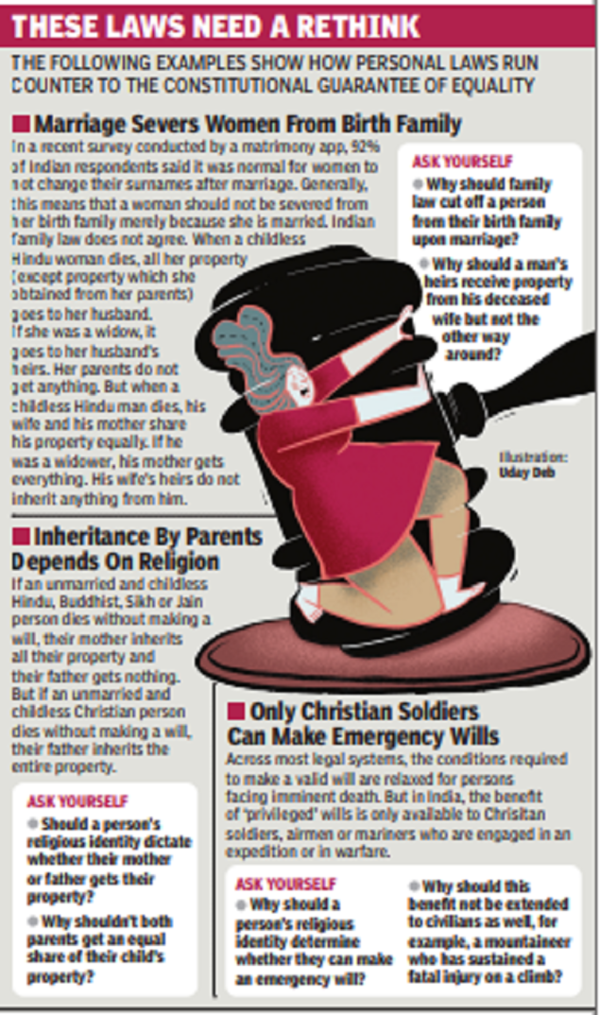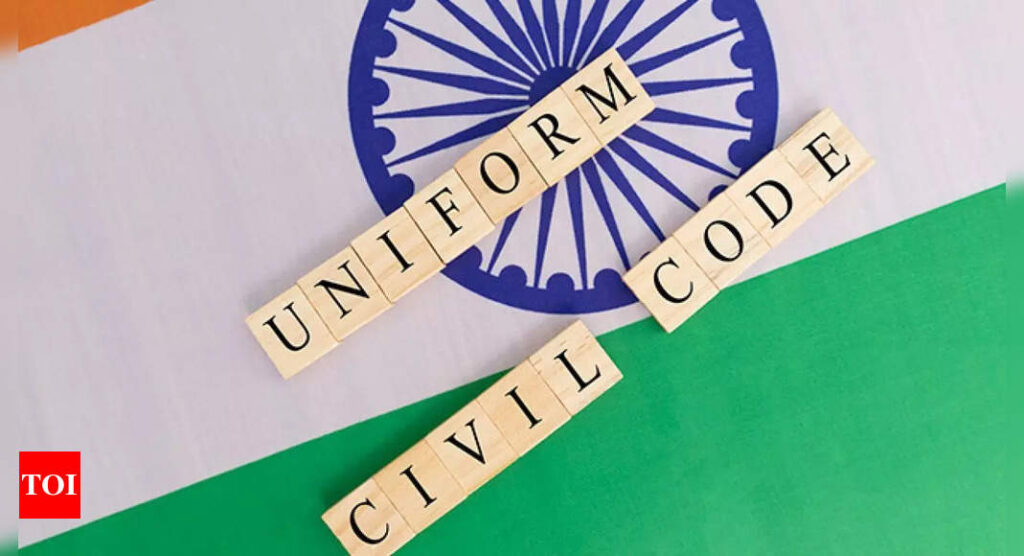[ad_1]
The bulk of Indian family law is housed within personal law – distinct sets of rules which apply to persons depending on their religious identity. Drawn largely from classical religious texts, our personal laws discriminate on the basis of gender and are based on outdated conceptions of the family. The UCC is an opportunity to update the fragmented and archaic Indian family law and modernise it.

Constitution Makers Pondered The UCC Question
According to several members of the Constituent Assembly, the Uniform Civil Code had the potential to be a progressive code of family laws governing marriage, divorce, adopt ion, inheritance and maintenance, uniformly applicable to all Indians. Hansa Mehta, Amrit Kaur and Minoo Masani – members of the committee which drafted the fun damental rights chapter of our Constitution – wanted gender-just and modern family laws to be a fundamental right of all citizens. But this was considered far too radical for the time. Instead, the committee decided to make it a directive principle of state policy – the state should simply endeavour to enact a UCC.
When placed before the Assembly, this draft provision was met with staunch opposition from conservative members, both Hindu and Muslim. It was at this point that BR Ambedkar and KM Munshi stepped in to convince the Assembly that following Independence, religious isolationism could no longer be a roadblock to gender justice and national integration. As a result, the Constitution incorporated Article 44 – the guarantee of a UCC – without actually drafting a code.

Good UCC Can Take India Ahead
That was 1948. Seventy-five years on, the debate is still where it was. Owing largely to the political rhetoric which has surrounded it, the UCC is often seen as synonymous with imposing Hindu law on the whole country, no matter how progressive such a code might be. On the other hand, each religious group having its own personal laws is conflated with preserving religious autonomy, irrespective of how discriminatory that personal law might be.
To reorient the debate, the need of the hour is a comprehensive, gender-just and inclusive model law which can serve as a base draft for discussions and consultations. To be a good UCC, the code should lay down conditions for a valid marriage and rules of succession to property which do not discriminate on the basis of gender. It should provide for joint ownership of property acquired during a marriage, and it should also lay down a framework for adoption which prioritises the best interests of the child, irrespective of their religion. Drafting a gender-just UCC presents India an opportunity to separate the ritual from the law, in the process reforming and decolonising it.
The authors are with the Vidhi Centre for Legal Policy, which has prepared a base draft of a UCC for public consultation
[ad_2]
Source link










More Stories
Congress replaces Kamal Nath, names an OBC as Madhya Pradesh chief | India News
Fire breaks out in ITBP camp in Srinagar; none hurt | India News
Parliament Security: Co-villagers give clean chit to Lalit Jha, parents to move court | India News